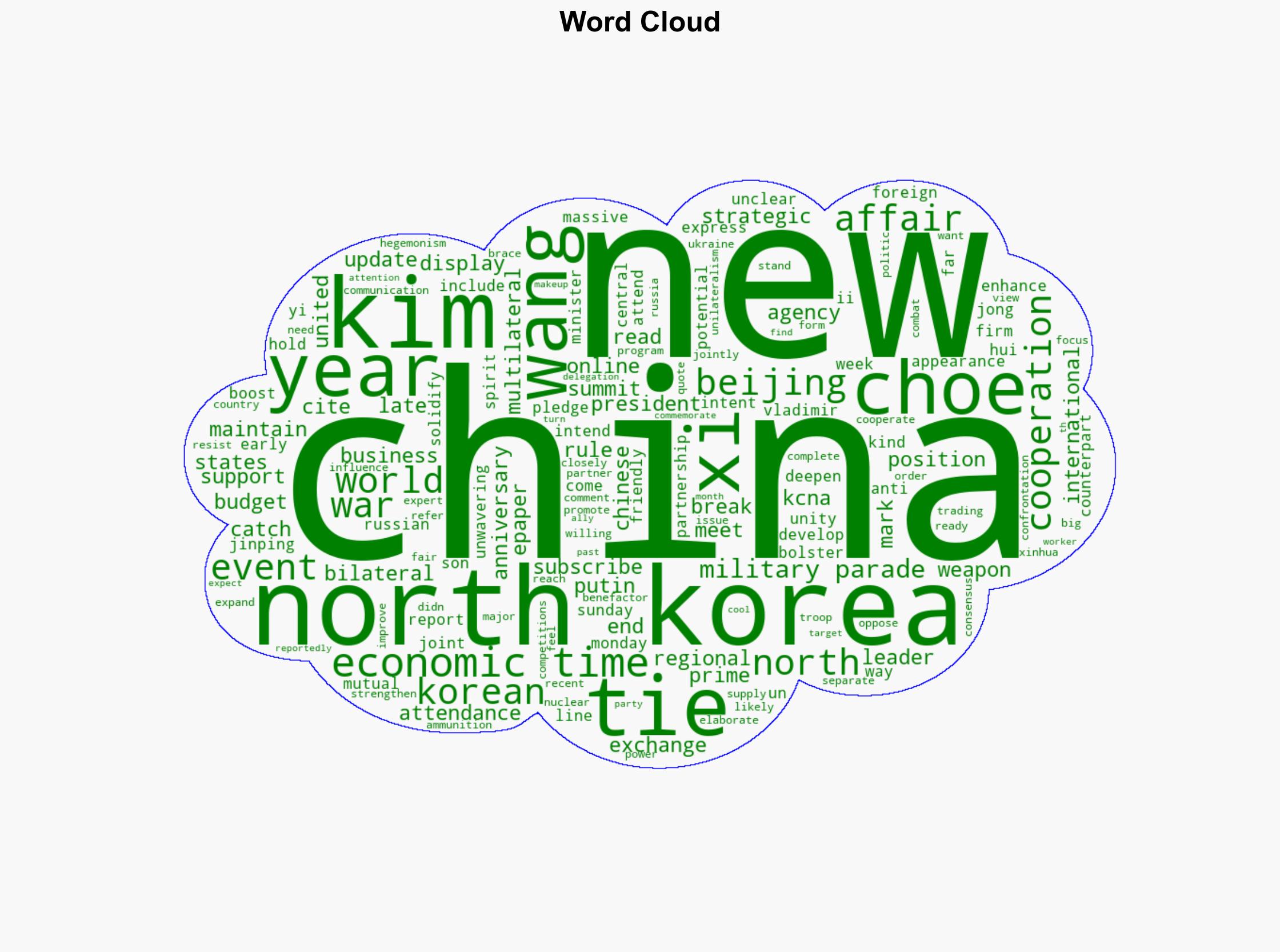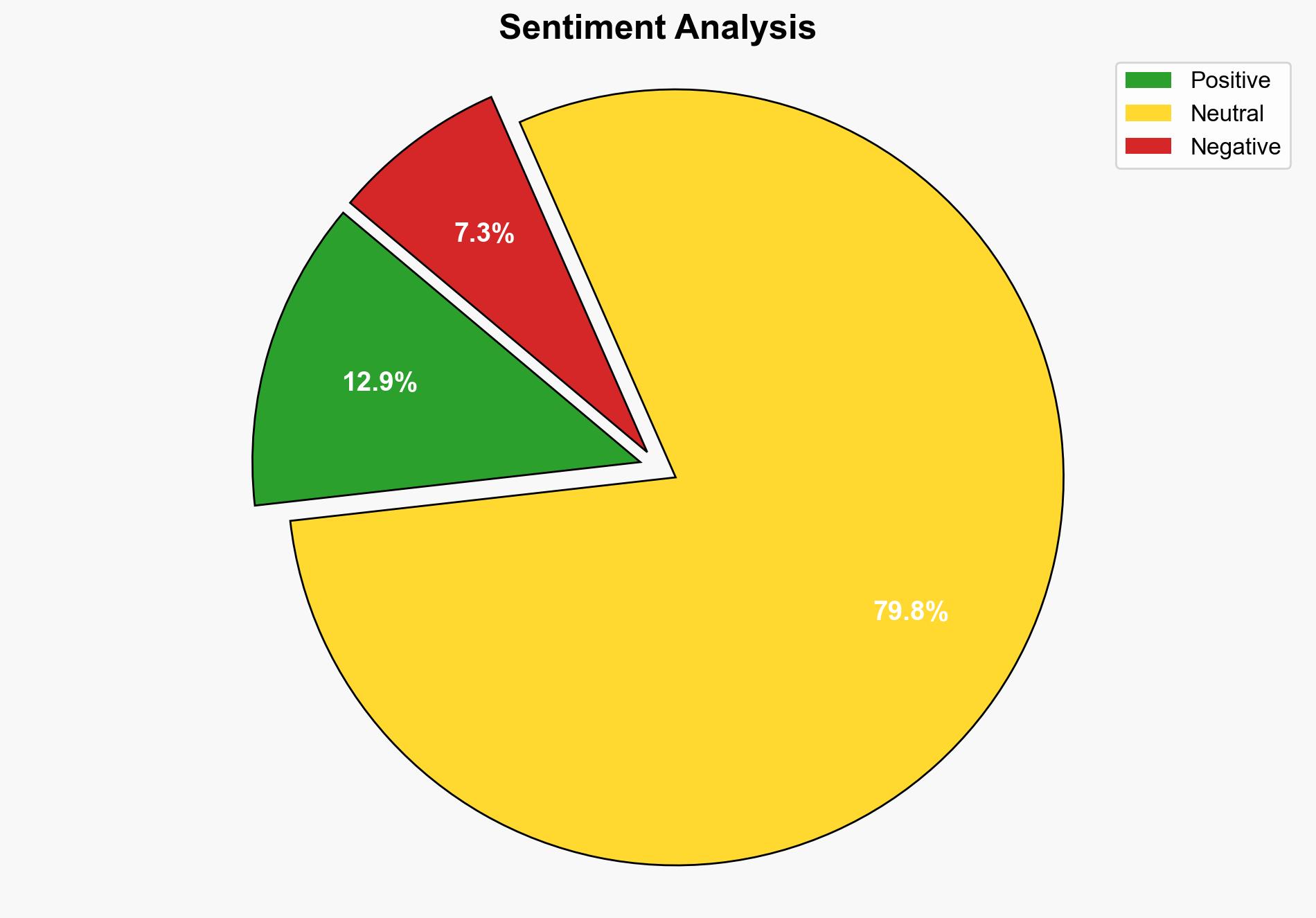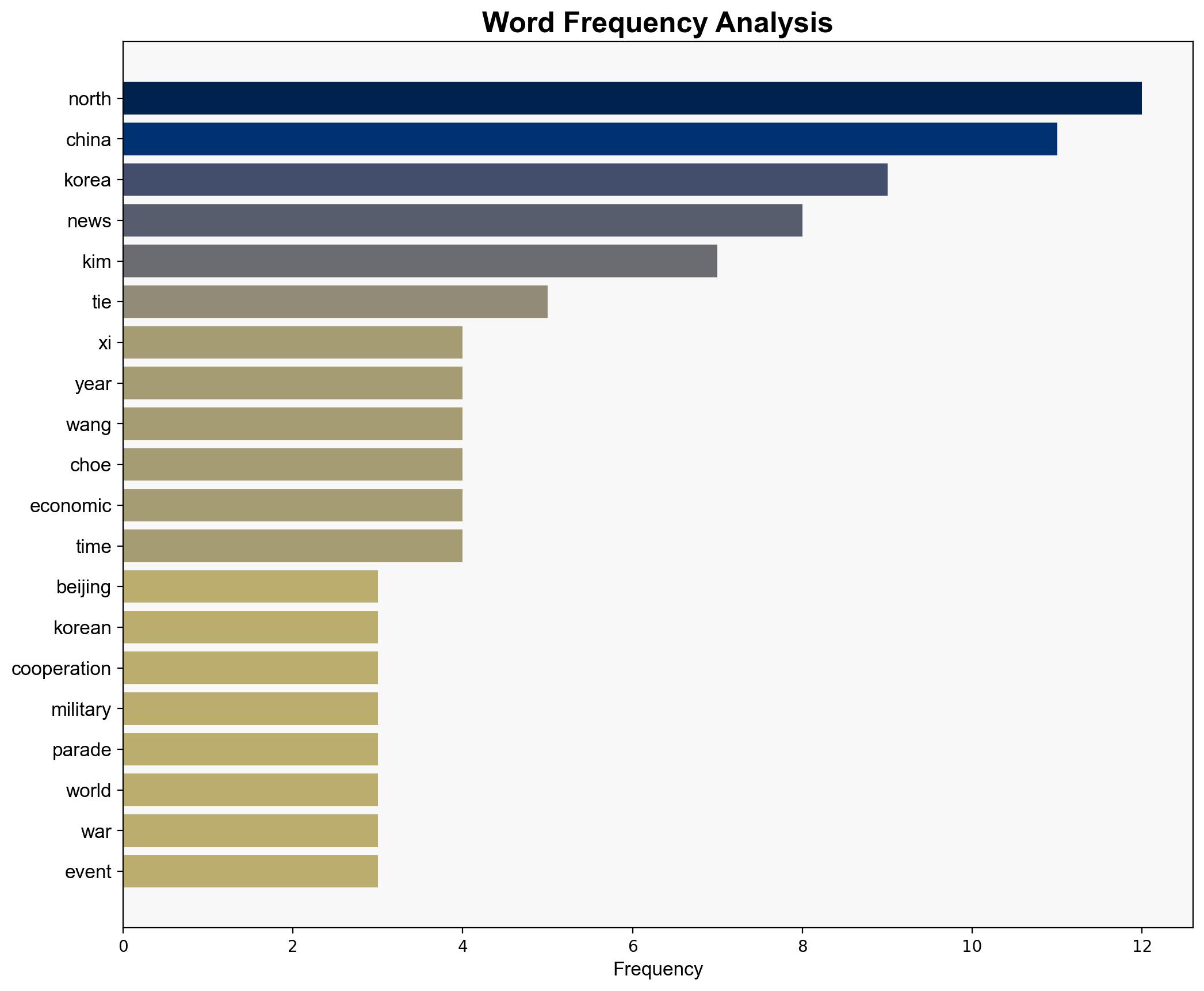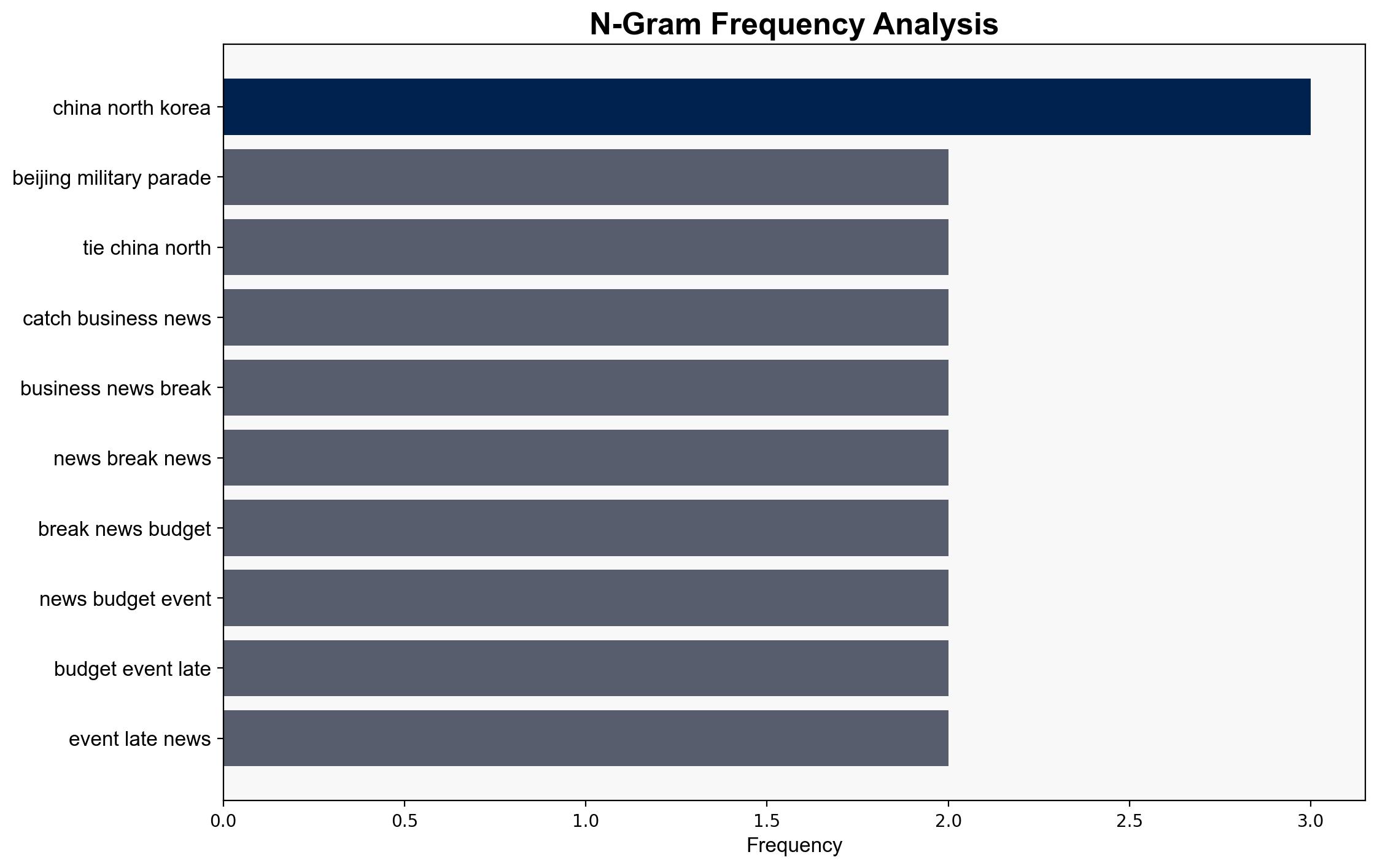Top diplomats of North Korea China agree to deepen ties and push back at US – The Times of India
Published on: 2025-09-30
Intelligence Report: Top diplomats of North Korea China agree to deepen ties and push back at US – The Times of India
1. BLUF (Bottom Line Up Front)
The most supported hypothesis is that North Korea and China are strategically aligning to counterbalance U.S. influence in the region. This alignment is driven by mutual interests in resisting perceived U.S. hegemonism and enhancing regional stability from their perspective. Confidence Level: Moderate. Recommended action includes monitoring further diplomatic engagements and military collaborations between North Korea and China.
2. Competing Hypotheses
1. **Hypothesis A**: North Korea and China are deepening ties primarily to counter U.S. influence in the region. This is supported by their mutual statements against hegemonism and their strategic communications.
2. **Hypothesis B**: The deepening ties are more about internal regional stability and economic cooperation rather than a direct counter to the U.S. This is suggested by the focus on bilateral trade and cooperation in multilateral forums.
Using ACH 2.0, Hypothesis A is better supported due to explicit statements about resisting unilateralism and power politics, which are likely references to U.S. actions.
3. Key Assumptions and Red Flags
– **Assumptions**: It is assumed that both countries have aligned strategic interests and that their public statements reflect genuine policy directions.
– **Red Flags**: The lack of detailed information on specific agreements or military collaborations raises questions about the depth of this alliance. The absence of explicit economic agreements in the report could indicate a focus on political posturing.
– **Blind Spots**: Potential internal dissent within either country regarding this alliance is not addressed.
4. Implications and Strategic Risks
– **Geopolitical Risks**: Strengthened ties could lead to increased tensions with the U.S. and its allies, potentially escalating military posturing in the region.
– **Economic Implications**: Enhanced cooperation may lead to shifts in regional trade dynamics, affecting global supply chains.
– **Cyber and Psychological Dimensions**: Potential for increased cyber operations targeting U.S. interests and psychological operations to influence regional perceptions.
5. Recommendations and Outlook
- Enhance intelligence collection on North Korea-China military and economic engagements to anticipate shifts in regional power dynamics.
- Engage in diplomatic efforts to reinforce alliances with regional partners to counterbalance potential threats.
- Scenario Projections:
- **Best Case**: The alliance remains primarily symbolic, with minimal impact on regional stability.
- **Worst Case**: The alliance leads to increased military conflicts and economic disruptions.
- **Most Likely**: Continued diplomatic posturing with incremental increases in military and economic cooperation.
6. Key Individuals and Entities
– Kim Jong Un
– Xi Jinping
– Vladimir Putin
– Wang Yi
– Choe Son Hui
7. Thematic Tags
national security threats, geopolitical strategy, regional alliances, U.S.-China relations





